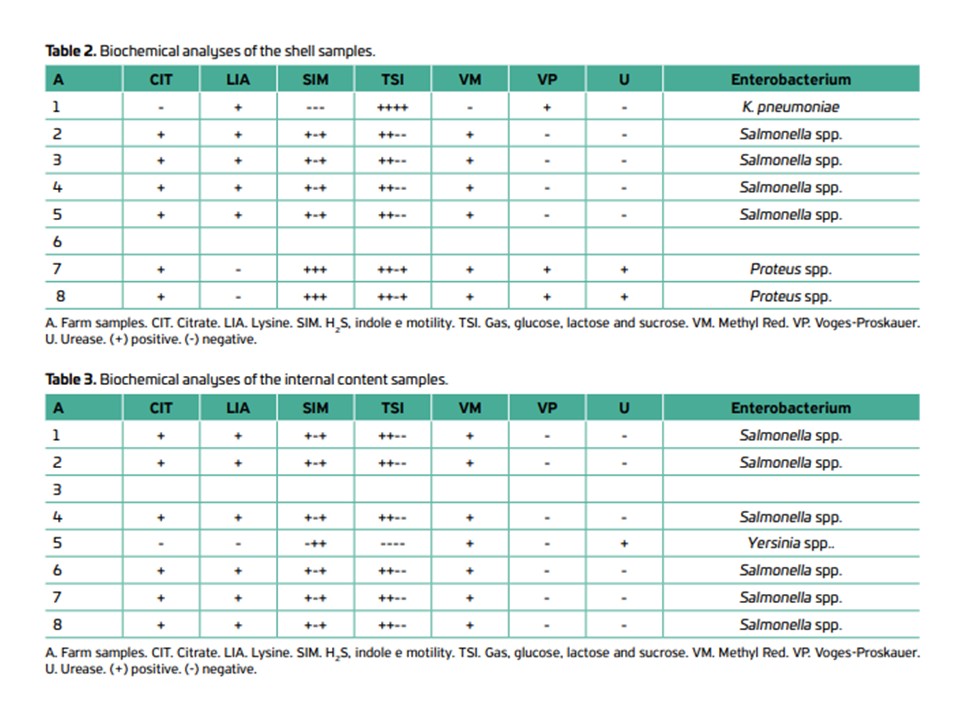Detection of Salmonella spp. in eggs for human consumption from poultry farms in municipalities of Alagoas State, Brazil
DOI:
https://doi.org/10.21708/avb.2022.16.3.10440Resumo
Salmonellosis is a disease that worries poultry farmers and can seriously impact the food safety of the population that consumes products of animal origin. The present study sought to detect the presence of Salmonella spp. in eggs intended for consumption from family poultry farms in municipalities of Alagoas State. The study was carried out from eight farms, where the sample from each farm was obtained by making pools of shell and internal contents of six randomly selected eggs. The pools were submitted to microbiological culture and the colonies were characterized and evaluated by means of laboratory tests. To this end, 50% (4/8) of the shell samples and 75% (6/8) of the internal contents of the eggs were positive for Salmonella spp. In addition, Klebsiella pneumoniae 12.5% (1/8) and Proteus spp. 25% (2/8) were found in the shell samples, and Yersinia spp. 12.5% (1/8) in the internal contents of the eggs. Salmonella spp. and other enterobacteria were confirmed to occur in eggs intended for consumption. The way the birds were raised did not seem to have a significant influence on the results obtained, and the presence of passerines on the farms may have contributed to the existence of bacteria there. Being aware of the risk to public health that some of these bacteria can present, it is necessary to take decisions that support the small producer in search of food safety for all.
Downloads

Downloads
Publicado
Edição
Seção
Licença
Copyright (c) 2022 Acta Veterinaria Brasilica

Este trabalho está licenciado sob uma licença Creative Commons Attribution 4.0 International License.
Autores que publicam na Acta Veterinaria Brasilica concordam com os seguintes termos: a) Autores mantém os direitos autorais e concedem à revista o direito de primeira publicação, com o trabalho simultaneamente licenciado sob a Licença Creative Commons Attribution que permite o compartilhamento do trabalho com reconhecimento da autoria e publicação inicial nesta revista. b) Autores têm autorização para assumir contratos adicionais separadamente, para distribuição não-exclusiva da versão do trabalho publicada nesta revista (ex.: publicar em repositório institucional ou como capítulo de livro), com reconhecimento de autoria e publicação inicial nesta revista. c) Autores têm permissão e são estimulados a publicar e distribuir seu trabalho online (ex.: em repositórios institucionais ou na sua página pessoal) a qualquer ponto antes ou durante o processo editorial, já que isso pode gerar alterações produtivas, bem como aumentar o impacto e a citação do trabalho publicado (Veja O Efeito do Acesso Livre).


 Esta obra está licenciada com uma Licença
Esta obra está licenciada com uma Licença 